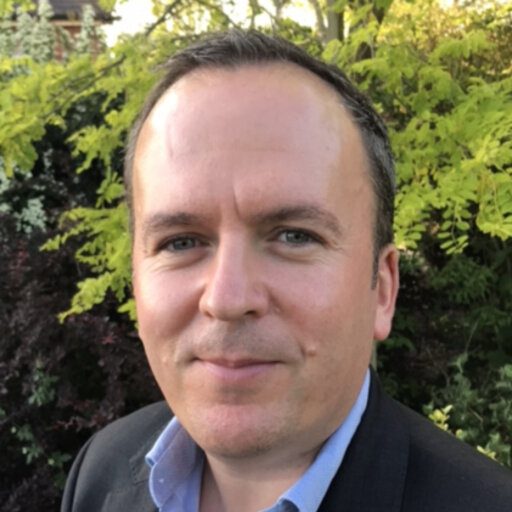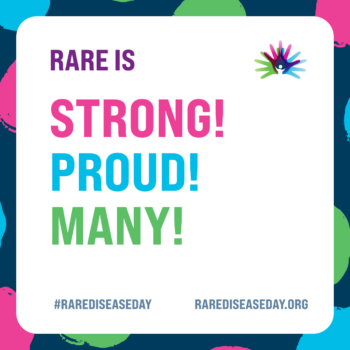How genetic testing answered questions for local family living with a rare disease
Baby Louisa was about six weeks old when her mum Michaela started to be concerned about her.
At the time, the family were living in Canada and Louisa – who was born with an ectopic kidney – wasn’t feeding and wasn’t putting on weight.
Michaela said: “She also looked a little different. But nothing was screaming out at me. Just a lot of little things which were worrying.”
When Michaela took Louisa to the emergency department with breathing problems – by now her breathing was very laboured and noisy – she was told by staff that Louisa’s oxygen levels were fine and that this was just something her daughter would outgrow.
Michaela continued: “So I thought, okay, she’s with an ectopic kidney but she can live without a kidney, she has this airway disorder but she’ll grow out of it. But she reached about three months old and she still wasn’t gaining weight, at four months she still looked like a newborn, by eight months she wasn’t sitting.”
“It’s been transformational”
On a prolonged stay in the UK, Michaela took Louisa to Great Ormond Street Hospital, where she was referred to a neurologist. Michaela said: “He said to me, please don’t listen mum, because I’m going to report the things that I see.
“He then highlighted all the things he noticed about how Louisa looks, saying her ears are too low, her lips are too thin, her nose is too flat. He listed all the visual parts of her that suggested to him that she has a genetic condition.
“That hadn’t even been on my radar. But I remember being really upset, because this was my beautiful baby he was talking about. Everything that we think is beautiful about her, is actually something that could be considered a genetic feature. So we think her eyes are extraordinary, the most beautiful part of her, but they’re also an indication of something else.”
On the family’s return to Canada, doctors recommended genetic testing for mum, dad and Louisa.
The results showed that Louisa had genetic variants including one de novo genetic mutation in ZNF865, but no one knew what it meant. At the time, doctors knew of just one other child from Denmark who had the same gene mutation. (There are now 13 children worldwide recognised with the same diagnosis.)
Michaela said: “I remember being really disappointed when the results came through, because I had expected answers, what did Louisa have? How long would she live for? How can I best help her?
“But having those few letters and numbers was transformational, we just didn’t realise it at the time.”
Community
In 2019 the family moved back to the UK, Louisa was placed under the care of Dr Marlow, consultant paediatrician at Colchester Hospital, and the results of her genetic tests in Canada were shared with the NHS.
Former primary-school teacher Michaela is now full-time carer for Louisa, who along with other children with the same mutation, has global developmental delay and a variety of health problems caused by the change in the ZNF865 gene. She has a severe sleep disorder and is non-verbal.
Michaela believes the genetic tests for her daughter have given them above all a community: “If you have a disabled or severely disabled child without a diagnosis, you can find yourself in a no man’s land and that’s really scary and lonely.
“I don’t feel I’m there anymore because thanks to genetic testing I have part of an answer, a combination of letters and numbers, and all of a sudden our world opened up to more people. That’s been emotionally invaluable.”
Geneticists have received funding to research the condition and the next step is to get it officially recognised as a rare condition.
Michaela said: “We don’t know what her future holds, but we do know that every day she is a blessing to us. She shows us the way.”
How a collaboration is helping more families in rural and deprived areas to access WGS tests
Michaela and her family are very grateful to have had whole genome sequencing for her daughter – and now more children with neurodevelopmental disorders (NDDs) can have access to whole genome sequencing tests, thanks to a collaboration between the Synapse Centre for Neurodevelopment in North Essex and NIHR Cambridge Biomedical Research Centre.
In fact, in just six months the collaboration has shown dramatic results.
Dr Marlow (photo, below), Director of the Synapse Centre said: “One in five of the children I see has a moderate-to-severe learning disability, or NDD, and genetic testing is essential to help us understand them biologically and genetically.

“But until recently we simply didn’t have the capacity to recruit and consent patients and families for genetic testing and research.”
This changed in May last year when the Synapse Centre joined forces with NIHR Cambridge BRC’s Antenatal, Maternal and Child Health theme; one of the resources it is funding is dedicated research time to consent families for whole genome testing.
Dr Marlow said: “It takes up to an hour to consent each family, and in a service which is already pressed clinically it’s really important to protect this time, which BRC funding has enabled us to do.”
The results speak for themselves. From May to November last year, the Synapse Centre recruited 27 families for WGS testing (compared with just two families in the previous 12 months) and almost 60 children to take part in research studies related to their conditions.
Dr Marlow said: “WGS tests are a vital part of our work at the Synapse Centre, which researches conditions such as autism, ADHD, Cerebral Palsy and genetic syndromes.
“The tests not only provide more accurate diagnoses, they could also open up more personalised interventions and treatments to help meet the needs of children with these conditions, both now and in the future.”
Antenatal, Maternal and Child Health Theme lead Professor David Rowitch said: “For patients with rare genetic conditions, we can offer tools for rapid diagnosis using whole genome sequencing, and we’re committed to providing these services across our region including under-served areas such as Colchester.
“Our studies, inclusive of diverse populations, will better demonstrate the value of advanced diagnostic services across NHS England.”
Recruiting to studies
Through the collaboration the Synapse Centre has recruited nearly 60 children to clinical trials, including the Cambridge-led NeuralNET Cerebral Palsy pilot study which is looking at the feasibility of WGS tests for children with CP whose clinical care might be changed by the result.
Dr Marlow said: “Studies have shown up to a third of children with cerebral palsy potentially have a genetic reason for their condition. This opens the door to potential treatment options that were not available before and we can address symptoms earlier.
“And if we can address them early on, we can prevent them from progressing which can lead to further complications.”
Overcoming barriers
Funding from the collaboration with NIHR Cambridge BRC is also paying for a paediatrics genetics counsellor for Colchester Hospital – which currently has none – who will start in early 2024.
Dr Marlow said: “This is badly needed and will go some way to addressing inequality of access to genetics services in the region.
“Part of this role will include patient recruitment to genetic research studies and to the NIHR BioResource.
“Having a paediatric genetics counsellor in situ will also help in promoting the benefits of WGS in the region, where under-served communities in particular face a combination of economic, social, environmental and cultural barriers.
“For example families may live in very deprived communities, or their parents have similar learning challenges, or they don’t access healthcare, or their sociocultural and physical environment may determine what’s acceptable to them.”
Framework for district generals
The collaboration with NIHR Cambridge BRC could serve as a framework for other district general hospitals across the East of England.
Dr Marlow added: “Our collaboration with Cambridge has accelerated our whole genome testing across paediatrics, but particularly in NDD.
“It’s also helped connect local families with the genetic service that is trying to define their needs better, and it’s raised the need to prioritise early intervention through better understanding of biological difference to the local ICB (Integrated Care Board) that commissions healthcare services for our population.
“And it’s shown how district general hospitals – which tend to offer fewer WGS services – can work with major university centres to promote WGS tests that aren’t universally commissioned but which are fundamental to helping children with additional needs.”
Professor Miles Parkes, Director of the NIHR Cambridge BRC, added: “It is great to see this cutting-edge research being taken out across the region and to see the enthusiasm with which it is being embraced in Colchester.
“It is critically important that our BRC-funded research infrastructure reaches into all corners of the region so that its benefits can be distributed beyond the traditional big university centres.
“We are very grateful to the team in Colchester for supporting the work and we very much hope that this will be a springboard to future collaboration.”
Personal motivation
Dr Marlow also has a personal motivation driving his research. His nine-year-old son Freddie is non-verbal, autistic and has many health issues.
Dr Marlow said: “In 20, 30 years’ time I firmly believe we’ll have a genetic and biological reason for his brain development, and that moreover every child in the UK will have their genome sequenced at birth, as the start of individualised care that will last their lifetime. “We’re not there yet, but we have to start somewhere and widening access to WGS testing is an important step to better understand and help children with NDDs, for children like Louisa and Freddie.”
- 29 February is Rare Disease Day. Visit their website to find out more about this incredible grass-roots globally movement on rare diseases.
- It’s not too late to join our Rare Disease webinar on patient-centred research! Book your ticket on EventBrite before 12pm today.



